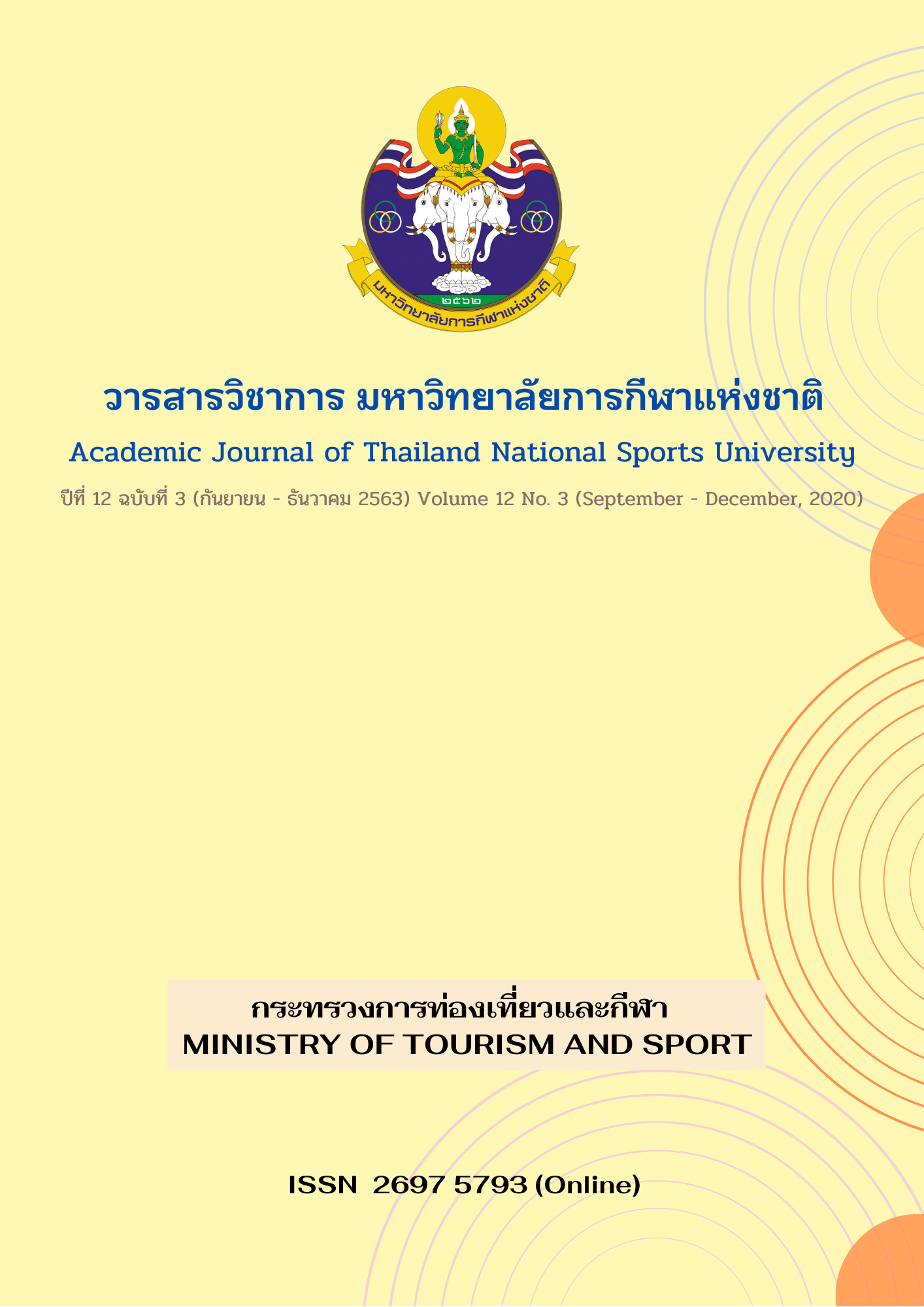THE DEVELOPMENT OF SEX EDUCATION INSTRUCTIONAL MODEL USING EXPERIENTIAL LEARNING THEORY AND COLLABORATIVE LEARNING TO ENCOURAGE THE CREATIVE THINKING IN TEACHING SEX EDUCATION FOR TEACHER STUDENTS
Main Article Content
Abstract
The purposes of this research were: 1) to develop sex education instructional model using experiential learning and collaborative learning theories in teaching sex education for teacher students, and 2) to study the effectiveness of the model. The random sampling method was used to assign 2 groups of 30 teacher students in each group (an experimental and a control group). The participants were the fourth-year undergraduate students majoring in health education from the five year program of education, who enrolled in the sex education course in academic year B.E. 2561. The research instruments comprised the lesson plans based on this developed model, achievement tests in sex education which consisted of knowledge, attitude, practice, and creative thinking in teaching sex education. The data were analyzed using mean, standard deviation and t-test.
The research findings were as follows: 1) The developed instructional model consisted of principle, objectives, procedure and evaluation. The instructional process was composed of 5 steps; creating awareness, enhancing knowledge, creating work pieces, presenting work pieces, and evaluating and reflecting the learning, and 2) The effectiveness of the developed instructional model showed that the mean scores of the experimental group were significantly higher than that in the control group in knowledge, attitude, practice and creative thinking for teaching sex education at the level of .05.
Article Details
The published article is a copyright of the Academic Journal of Thailand National Sports University. The passage appeared in each article in this academic journal is a perspective of each author which is not related to the journal. Each author is required to be responsible for all components of his/her own article. If there are any mistakes, each author must be responsible for those mistakes on his/her own.
References
Aimutcha Wattanaburanon and Pannawit Piyaaramwong. (2018). Health education and health development in the 21st century. Chulalongkorn Medical, 62(5), 871-878.
Davis School District. (2000). Programs and Services. Retrieved from http://www.davis.k12ut.us/home/programs.html
Johnson, D. W., & Johnson, R. T. (1991). Cooperation in the classroom. MN: Interaction Book Company.
Joyce, B., and Weil, M., (1992). Models of teaching. (4th ed.). Englewood Cliffs. NJ: Prentice-Hall.
Kolb D. (1984a). Experiential Learning. USA: Prentice Hall.
Kolb D. (1984b). Learning Styles Model and Experiential Learning Theory. New Jersey: Prentice Hall.
Office of the National Economic and Social Development Council. (2017). The Twelfth National Economic and Social Development Plan (2017-2021). Bangkok: Office of the National Economic and Social Development Board Office of the Prime Minister.
Orlich D. C. et al. (2010). Teaching strategies: A guide to effective instruction. Boston: Wadsworth.
Tissana Khemmani. (2018). Science of teaching: Knowledge of efficient learning process management. Bangkok: Chulalongkorn University.


